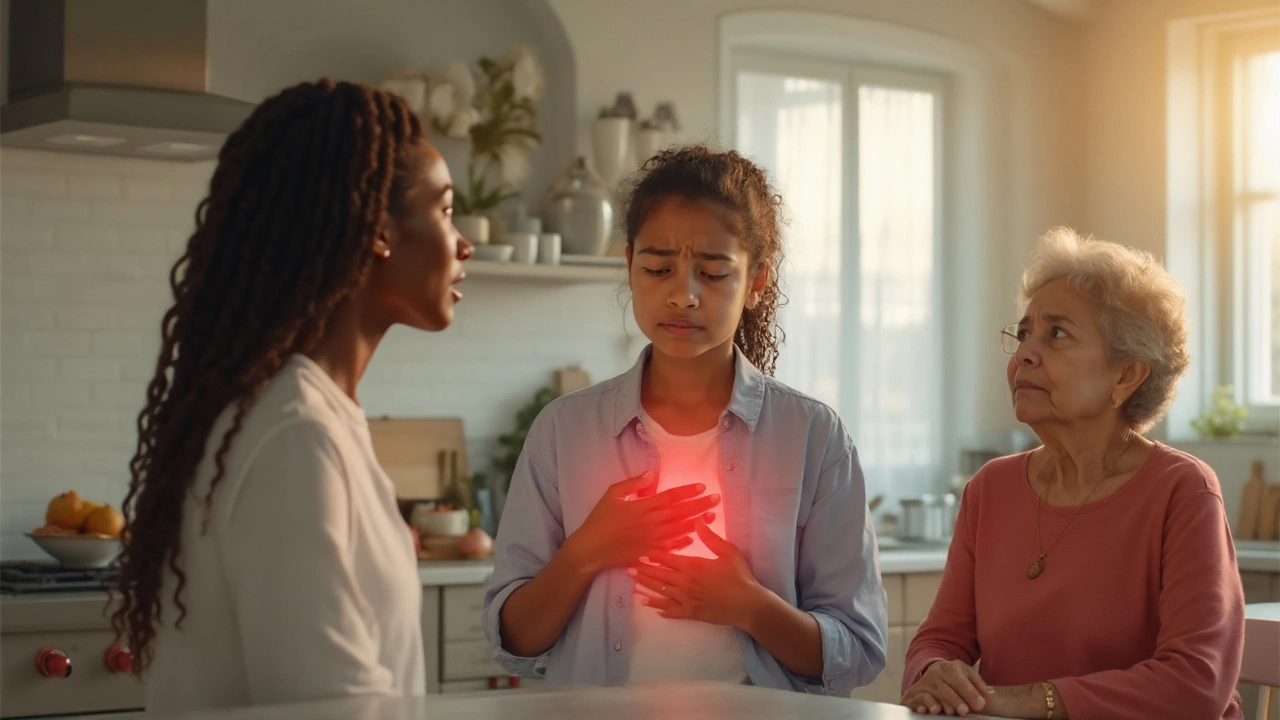Chest Pain in Women: What It Means and When to Act
Feeling a tightness, pressure, or sharp sting in your chest can be scary, especially if you’re not sure what’s causing it. Women often experience chest pain differently than men, and the warning signs of a heart problem can be subtle. Knowing the most common reasons for chest discomfort and the red‑flag symptoms can help you decide whether a quick doctor’s visit or a call to 911 is needed.
Common Causes of Chest Pain in Women
Heart‑related issues are the biggest concern. Women may have a heart attack without the classic crushing pain that men report. Look for pressure, squeezing, or a feeling of heaviness that spreads to the jaw, neck, back, or arm. Even short bouts of breath, nausea, or unusual fatigue can signal a cardiac event.
Acid reflux (GERD) often mimics heart pain. Stomach acid moving up the esophagus creates a burning sensation that rises after meals or when you lie down. If the pain eases with antacids or when you sit upright, reflux is a likely culprit.
Muscle strain from heavy lifting, intense workouts, or poor posture can cause sharp, localized pain that worsens when you move your arms or take a deep breath.
Panic attacks and anxiety trigger rapid breathing and a tight chest. The discomfort usually peaks within minutes and eases after you calm down. However, anxiety can also hide an actual heart problem, so don’t ignore persistent symptoms.
Other conditions such as pneumonia, pulmonary embolism, or gallbladder disease can present with chest pain. These usually come with fever, cough, shortness of breath, or shoulder pain.
What to Do When You Feel Chest Discomfort
First, assess the severity. If the pain is sudden, intense, or accompanied by any of these signs, call emergency services right away:
- Shortness of breath or difficulty speaking
- Cold sweat, light‑headedness, or dizziness
- Nausea, vomiting, or unexplained fatigue
- Radiating pain to the arm, jaw, neck, or back
If the pain is mild and seems linked to a specific activity (like after a heavy workout), try these steps:
- Stop the activity and rest in a comfortable position.
- Take slow, deep breaths to reduce anxiety or muscle tension.
- Use an over‑the‑counter antacid if you suspect reflux.
- Apply a warm compress to sore muscles.
Give yourself 10–15 minutes to see if the pain eases. If it persists, worsens, or you can’t pinpoint a cause, schedule a visit with your primary care doctor or a cardiologist. They may run an EKG, blood tests, or imaging to rule out heart disease.
Prevention matters, too. Regular cardio exercise, a balanced diet low in saturated fats, and managing stress lower the risk of heart‑related chest pain. Keep an eye on blood pressure, cholesterol, and blood sugar levels—these numbers are stronger predictors of heart trouble than age alone.
Finally, don’t ignore your intuition. Women often brush off chest symptoms because they think “it’s just heartburn.” Trust your body: if something feels off, get it checked. A quick evaluation can be the difference between a simple remedy and a life‑saving intervention.

Women’s Chest Pain: Recognizing Unique Symptoms & Causes
Learn how chest pain shows up differently in women, its hidden causes, and what symptoms demand urgent care. Get practical tips for recognizing and responding to female‑specific heart warning signs.
Read More